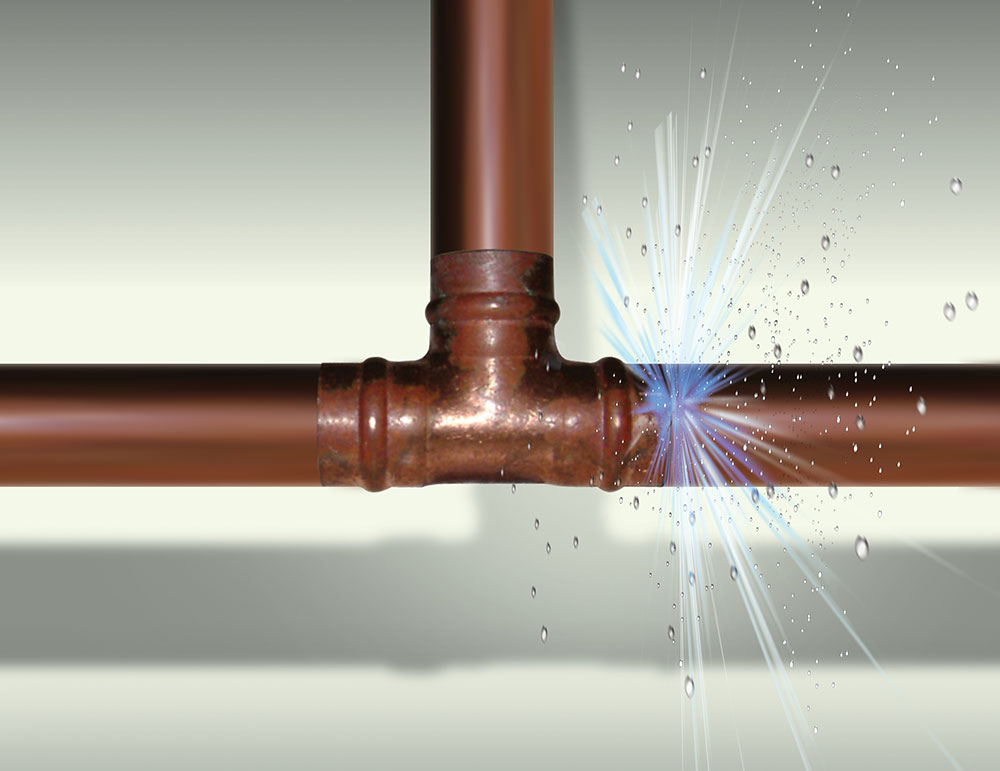As winter is in full swing and temperatures begin to drop, there is a high likelihood that if your pipes aren’t protected and warm, that they will burst causing extensive damage to your home, personal property, and will leave your family susceptible to the effects of harmful molds if you do not get your home properly dehumidified. The following article details steps on how to avoid a burst pipe and what to do if your pipes burst.
Steps to Avoid Burst Pipes
- Never let the temperature in your home drop below 55 degrees
- Insulate your home and your pipes with heat tape, caulk, and insulation
- Turn on faucets to a low dribble to keep the water flowing through your pipes
- Open your cabinet doors under your kitchen sink to allow warm air to fill the space
- Make sure that your entire home is at 55 degree—search for cold spots
We hope you never have to deal with a burst pipe. However, we are here for you if you do. Continue reading below to know what to do if you come home to a watery disaster.
What To Do If Your Pipes Have Burst
Don’t Panic!
It’s easy to panic when part of your home, such as your running water, isn’t working, especially if you are not mechanically or home-improvement minded. However, just because you turn on your faucet and there isn’t any water coming out of your sink and your pipes have frozen doesn’t mean that your pipes are going to burst. Leave your water on and call a local plumber.
Do Not Use Electrical Appliances
You are free to use any electrical appliance you please, except when they are sitting in water. Do not use an electrical appliance that is sitting in water—you could be electrocuted. If an appliance is sitting in standing water pulled in or running, do not enter the water. Stay away and call a disaster response specialist!
Do Not Use Open Flame
Though it may be tempting to try and thaw your pipes with a torch or other open flame tool, don’t! This isn’t the proper way to thaw your pipes and you may instead burn your house down, which leaves you with a result that isn’t any better!
Turn Off Your Water
If you come home to a flooded mess, if it is safe to do so (i.e., you are not entering standing water) turn off the main shutoff valve in the house so no other water is allowed to enter your home’s plumbing system. Also, keep all the faucets on and call Disaster Response!
What Happens Next?
Though of course it depends on the extent of the damage, there are some main steps of the water damage restoration process that will be taken to get your home back in working order. Here is what you can expect:
- Get rid of standing water
- Dehumidify the area
- Throw out damaged materials
- Test for mold
- If mold is found, remove it right away
- Repair pipes and replace damaged materials
If your pipes have burst or you are experiencing any other water damage, call Disaster Response right away! We have disaster response teams available 24 hours and seven days a week, because we know that disasters never follow the nine-to-five schedule and getting the cleanup process started right away is crucial. Even waiting a few hours after the event can cause even more damage and give mold the open invitation to make your home it’s residence. To learn more about the water damage restoration services that we offer, visit our website. Contact us right away if you are in need of assistance!

